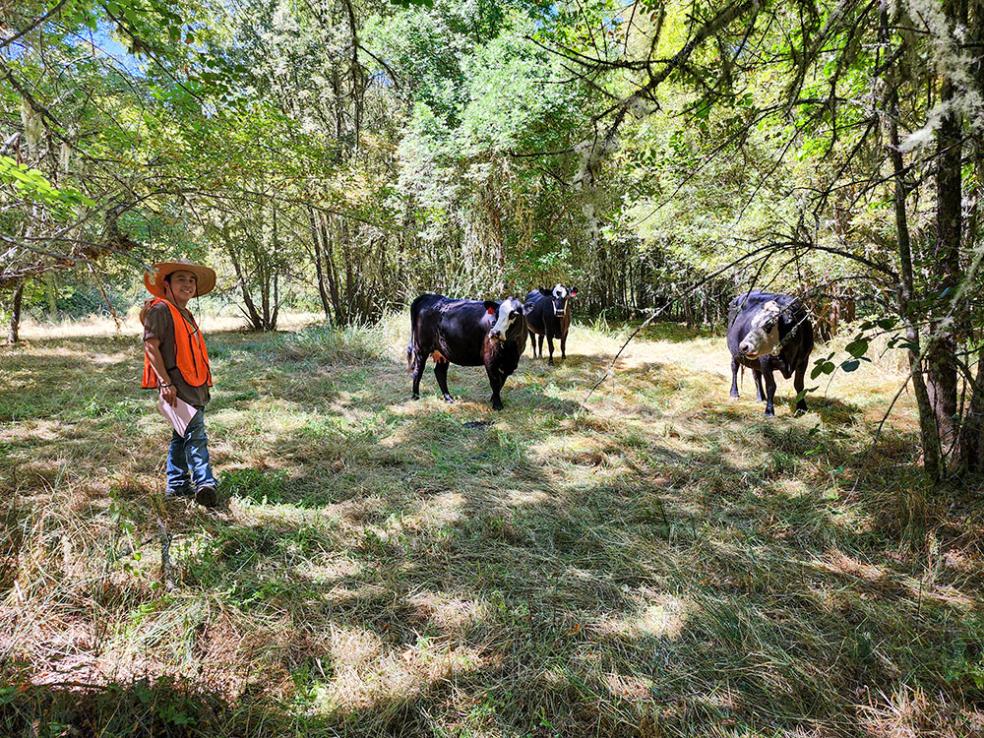
That’s the subject of one of two studies underway by Rangeland Resource Science professor Justin Luong, who was awarded $2 million in grants for the research.
The grazing study will take place in wetlands at the Willits Bypass, a stretch of U.S. Highway 101 that is also the site of the largest public wetland restoration project in the state.
Luong’s study aims to develop strategies to manage working lands to support both biodiversity, nutrient cycling, and cattle production. Grazing is often viewed as a disturbance, but studies have demonstrated that grazing can limit the spread of invasive species, improve native plant diversity, and aid germination for a diverse suite of herbaceous grass and forb species. Under the right hydrological conditions, managed grazing can also be an important tool for managing wetland nutrient cycling.
Luong will conduct an observational field study at the Willits Bypass, and analyze existing data, aerial imagery, and model long-term grazing-induced changes to hydrology, nutrient cycling (nitrogen, carbon), and plant productivity.
The study is supported by a $520,000 grant from the California Bountiful Foundation, the 501(c)(3) research organization of California Farm Bureau.
Luong was also recently awarded $1.5 million in funding from The California Climate Action Seed Grants.
Luong’s project aims to work collaboratively with land managers across the state to establish best practices for successful and climate-adaptive grassland restoration and sharing restoration and seed knowledge.
Grasslands support carbon and water storage, flood mitigation, ecotourism, and forage production. These biodiverse habitats span 25% of California and serve as the foundation for the ranching economy. California’s grasslands are biodiversity hotspots and globally unique, but climate change will make it unsuitable for endemic species; so innovative restoration must focus on climate resilience for a diverse suite of species.
This project will support two graduate students and several undergraduate students. One undergraduate student is currently working on examining the effects of drought on the threatened north coast semaphore grass. Several other undergrads will assist as lab or field assistants.
The Grassland Restoration Action, Science, and Stewardship Network (GRASS-Net), which Luong is forming with several state and federal agencies, will work with partners to develop climate-smart restoration protocols and tools related to drought-resilient plant selection and site assessment. The project will increase access to the best available science for restoring coastal California grasslands, inform nature-based solutions, strengthen climate resiliency, and leverage existing resources.